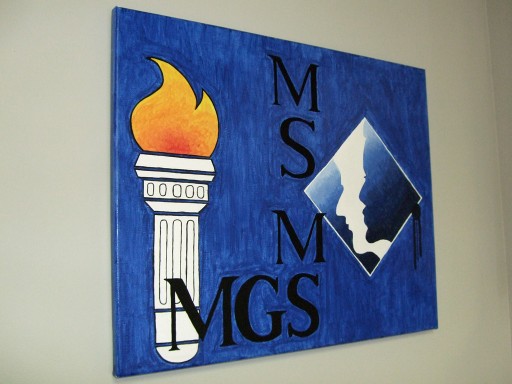Merry Thanks-for-Giving Week!
JustHeath has often been described as “mysterious,” “private,” “esoteric,” etc. This criticism is fair. However, I’m going to divulge some things today, so pay attention! (Revelation #1: JustHeath very much dislikes unnecessarily repeating himself.) Firstly, I admit that I am somewhat resistant to anything resembling a fad (Revelation #2), so that is one reason why I do not participate in the prominent postings of things I’m thankful for each day in November. Please don’t take that to mean that I am against expressing thankfulness because that is most definitely not the case…in fact, I advocate it wholeheartedly, but not just in a Facebook forum. Also, please don’t take my remarks to mean I am being critical of anyone’s choice to list his or her gratitude…I just choose to express myself differently. To further delineate this point, I have never—and do not plan to ever—owned anything made by The North Face due to its overabundance on a campus that I attended for undergraduate education. Perhaps it makes me a bit hipster—or more accurately probably spipster—, but I consider myself a Columbia Sportswear kinda guy (Revelation #3). Notwithstanding my—shall we say—intrigue, I am going to disclose some things I am thankful for here on Philosophy Matters.
Anyone who knows JustHeath knows that he has a great passion for gifted adolescents—and for using the third person when most would use the first (Revelation #4 & #5). In fact, the target population of my dissertation was gifted high school students. I am very thankful that I have the honour (Revelation #6: I enjoy using British spellings for many words…except judgment) of working at a specialized high school for academically gifted juniors and seniors. In fact, I am actually an alumnus of this institution, and it is where I met Philosophy Matters’s own Father Jim Morrison. For the past 14 years, I have also been affiliated in some capacity with the Mississippi Governor’s School (MGS), which is a three-week residential summer program for gifted juniors and seniors. I cannot even begin to describe how influential the program has been on my life, but I will mention a few facts to give readers an idea of the scope of the influence. For starters, I met Philosophy Matters’s founder, JJ, at the program, and I am happy to report that 4/5 (80%) of the site’s authorship is MGS-affiliated. In addition, of the 1,400 or so Facebook affiliates I have, the vast majority of them were introduced to me at the program over the course of almost 1.5 decades; all but two of those who “follow” me on Twitter are MGS-associated. Some of my most enjoyable moments are spent reminiscing or just otherwise connecting with MGSers, and I am very thankful that I was able to visit with quite a few this past week.
Regarding the gifted, I thought I’d share a bit of information about what that term means as it’s been thrown around a lot (especially by me in this post). There is no universally accepted definition for what it means to be gifted, and many readers may be surprised to know that there is no official one endorsed by the federal government. The closest thing would be the Marland (1972) definition which states that the gifted students are capable of high performance in at least one of many areas, such as intelligence, subject area, creativity, leadership, the arts, or psychomotor ability; they also require specialized educational services and programs. The National Association for Gifted Children (NAGC, 2008)’s definition is “someone who shows, or has the potential for showing, an exceptional level of performance in one or more areas of expression.” Readers may notice that these definitions are somewhat general because…they are. States are left to decide their own criteria for gifted education, and many states even pass the buck on down to the individual school districts. Some may require IQ tests, but many (if not most) do not. For example, in the Illinois School Code’s (2005) definition is “children and youth with outstanding talent who perform or show the potential for performing at remarkably high levels of accomplishment when compared with other children and youth of their age, experience, and environment” (§ 5/14A-20). In Mississippi, the Mississippi Gifted Education Act of 1989, as amended in 1993, states that gifted students are “children who are found to have an exceptionally high degree of intellect, and/or academic, creative or artistic ability” (Miss. Code Ann., § 37-23-175). Of course, many state departments of education provide more clarification as within their jurisdiction, but in my experience a common criterion is that students should be in the top 10% (90th percentile) of…something. Regardless, stay tuned for further posts on giftedness.
In conclusion, readers may have noticed my title and use of Thanks-for-Giving versus Thanksgiving. JustHeath is always intentional (Revelation #7), and he really, really likes children’s books and cartoons (Revelation #8). I was inspired by the 1980 Looney Tunes classic “Daffy Duck’s Thanks-for-Giving Special,” and I want to leave you this week with a challenge. During this holiday season, please be thankful for your family, friends, and other blessings, but don’t JUST be thankful. Try to GIVE something to others to make them give thanks. I suspect these acts will only improve your holiday cheer, and I can honestly say that I continue working with the gifted in an attempt to display some minuscule semblance of giving back as a way to say “thanks.”
That’s all, folks.
References
Marland, S. P., Jr. (1972). Education of the gifted and talented: Vol. 1. Report to the Congress of the United States by the U.S. Commissioner of Education. Washington, DC: U.S. Government Printing Office. (ERIC Document Reproduction Service No. ED056243)
Mississippi Gifted Education Act, Miss. Code Ann. §§ 37-23-175 (1993). Retrieved from http://www.mscode.com/free/statutes/37/023/0175.htm
National Association for Gifted Children. (2008). What is giftedness?. Retrieved from http://www.nagc.org/index.aspx?id=574
School Code, 105 Illinois Compiled Statutes § 5/14A-20 (2005). Retrieved from http://www.ilga.gov/legislation/publicacts/fulltext.asp?Name=094-0410&print=true
